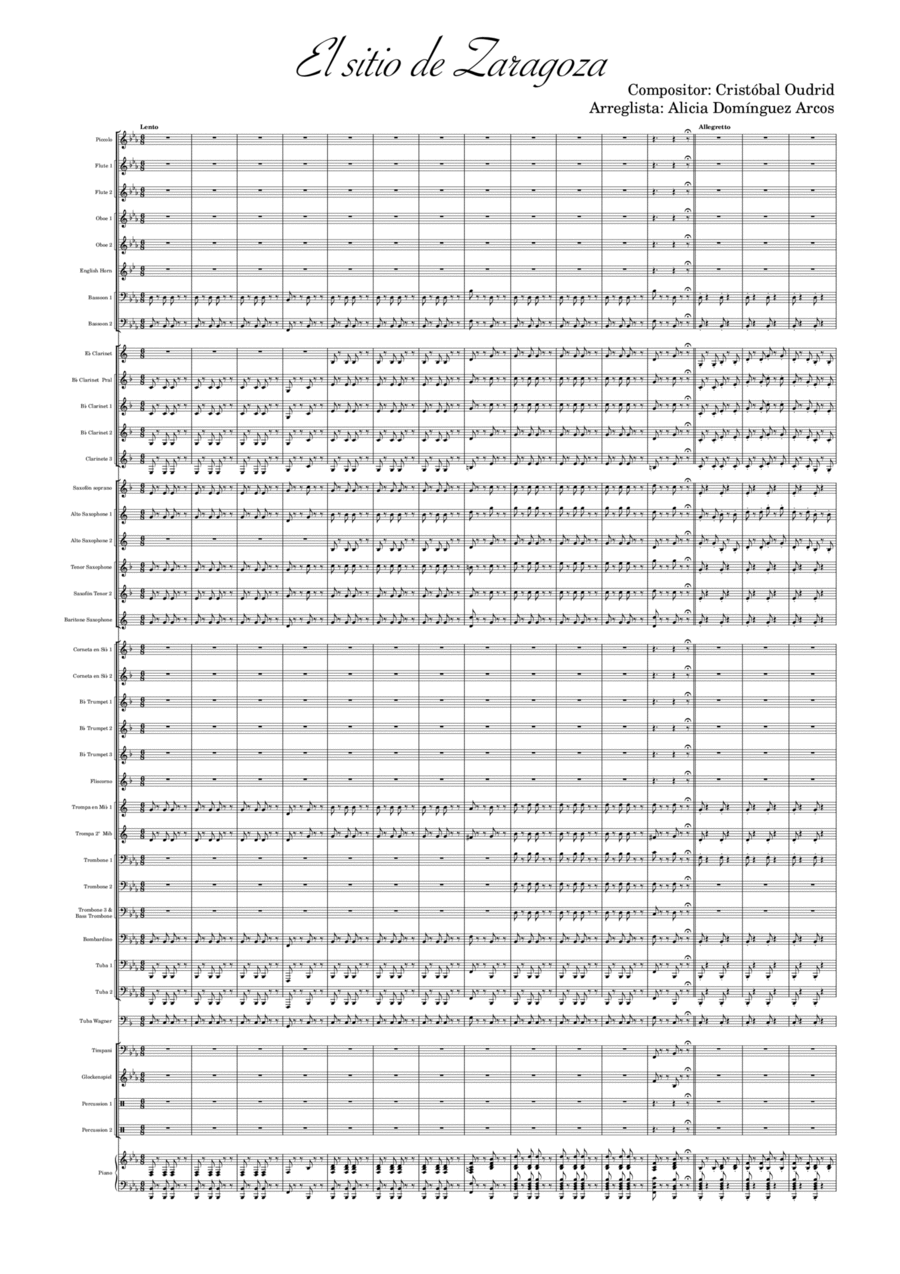Marching Band - Level 3 - Digital Download SKU: A0.1516009 By Alicia Domínguez Arcos Sonay. By Cristóbal Oudrid y Segura. Arranged by Alicia Domínguez Arcos. 19th Century,Contemporary,Historic,Patriotic,Traditional. 24 pages. Alicia Dominguez #1090255. Published by Alicia Dominguez (A0.1516009). Cristóbal Oudrid y Segura was a Spanish pianist, composer of zarzuelas and conductor. He was the son of Cristóbal Oudrid y Estarón, born in Madrid in 1793, a musician in the Napoleonic troops stationed in Badajoz, and director of the National Militia's band from 1825, and Antonia Segura González, born in Badajoz in 1801. He was married to Vicenta Muñoz Vallejo, a native of the same city. As a composer, he is remembered for revitalizing the genre, for pieces in his zarzuelas El molinero de Subiza and El postillón de la Rioja, and for the piece El sitio de Zaragoza, originally the incidental music he composed for the eponymous drama by Juan Lombía. In 1851, together with Joaquín Gaztambide, Rafael Hernando, Francisco Asenjo Barbieri, José Inzenga y Olona y Salas, he founded the Sociedad Artístico Musical para el cultura de la zarzuela. As a conductor, he directed the orchestra of the Teatro Real in Madrid and the Teatro de la Zarzuela. He is buried in the patio de la Concepción de la Sacramental de San Isidro. His grave has a medallion with the composer's effigy made by the Italian sculptor Benedetto Civiletti, a specialist in funerary monuments for cemeteries. The siege of Zaragoza is a descriptive fantasy on military themes composed by Cristóbal Oudrid around 1848. The work was originally conceived as incidental music for the play El Sitio de Zaragoza of 1808 by Juan Lombía, a drama in three acts and written in verse. The music was to be played throughout the play and ended with a rondalla playing the Jota aragonesa. As the piece became very popular with the public, Oudrid made an anthology with it and the rest of the work to create the instrumental work in the form of a descriptive fantasy, independent of the play. During the second half of the 20th century, the work gained popularity due to the national exaltation of heroes of the sieges such as Agustina de Aragón. It was common for military bands and police groups to perform it in recitals and today it continues to be performed by municipal and military bands as well as by orchestras and groups in various versions that offer different readings of the work.
